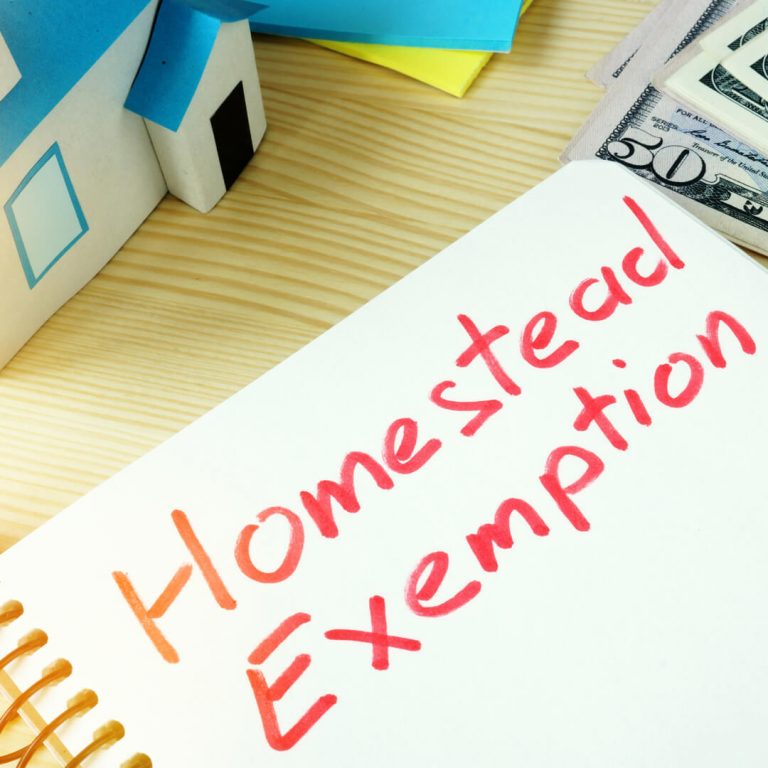Editor’s note: Before altering your tax strategy, it’s important to sit down and consult with your tax specialist. They have a firm understanding of your wants and needs, as well as the knowledge of tax law required to maximize your wealth potential.
The homestead exemption can help you save a significant amount on your taxes and offer other legal provisions. Read on for all your questions on the homestead exemption, answered.
What is the homestead exemption?
The homestead exemption is a legal provision in a state’s tax laws that reduces the property tax on a home, can protect a home from bankruptcy and provides specific rights to surviving spouses.
A homestead refers to a dwelling that is inhabited by the homeowner. It can be a manufactured home, a condo or a three-story colonial, though the exact criteria will vary by state.
The “homestead exemption” generally refers to the exemption the homeowner can claim when filing taxes to lower the taxable value of their home by a specific dollar amount. However, a homestead exemption can also provide additional legal protections, such as preventing the homeowner from having to sell the home after declaring bankruptcy. The homestead exemption also includes a feature of probate law, wherein the homestead does not have to be included during probate and can allocate an allowance for a surviving spouse or children.
What are the qualifying factors for a homestead exemption?
Eligibility requirements for the homestead exemption are different in each state. However, the principal qualifying factor in most states is that the homestead is the primary place of residence for the homeowner. Generally, the homeowner must be able to prove they have lived in the homestead on Jan. 1 of the taxable year to be eligible for an exemption.
Some states make a general homestead exemption available to all homeowners who reside in the home. In other states, only senior citizens, surviving spouses of veterans and former military members and people with a disability can qualify for the exemption. There may be income limits for the exemption, as well. Other states establish qualifying criteria around the homestead alone. Still others, such as New Jersey and Pennsylvania, don’t offer the homestead exemption for tax filers at all.
How much money can I save with a homestead exemption?
The homestead tax exemption can lower a property tax bill by a substantial amount. The dollar amount of your exemption can be directly deducted from the total taxable value of the home. For example, if you qualify for a $30,000 exemption on a $250,000 home, your taxable home value will only be $220,000.
As mentioned, criteria for the homestead exemption can vary tremendously by state, and this is true of the exemption amounts as well. Most states have established a maximum amount for the exemption, which starts at just $5,000 and goes all the way up to $500,000 in states like Massachusetts and Rhode Island. In Florida, the homestead exemption can be as high as $50,000, Texans can write off $25,000 in a homestead exemption for school district taxes, and Californian homeowners can deduct $7,000 off their taxable home value.
The average homestead exemption amount in the U.S. is approximately $30,000 to $50,000.
In addition to the dollar savings on your taxes, a homestead exemption can also freeze your home’s assessed value or limit how much the future assessed value can increase.
Can the homestead exemption shield me from unsecured creditors?
The homestead exemption offers a limited amount of protection from unsecured credit lenders, which includes credit cards, personal loans and lines of credit. This means these types of creditors cannot force the homeowner to sell the home if they are owed money. The amount of financial protection offered for unsecured credit varies by state, with some states, including Florida, Iowa, Kansas and Texas, providing unlimited financial protection to qualifying homeowners against unsecured creditors.
It’s important to note that protection limits are relevant for the equity of the home and not for the value of the property. Consequently, if the equity of your home is less than the limit, the law prevents creditors from selling your property. However, if the equity of the home exceeds the state limit, creditors can force the sale of the home in question but will need to share a portion of the proceeds with the homeowner.
Secured credit, however, like mortgage loans, cannot be protected by the homestead exemption. That means a homeowner can, therefore, lose their home to a mortgage lender if they are not up-to-date on their mortgage payments, even if they qualify for a homestead exemption.
How can the homestead exemption help a surviving spouse?
Homestead exemptions are part of the probate code to help a surviving spouse. After someone dies, their surviving spouse and family may be granted the right to continue living in the homestead as their residence, even if the title of the house transfers to someone else. The right to live in the homestead may continue until the surviving spouse passes or the youngest child turns 18 years old.
In addition, some states preclude a property with a homestead exemption from probate proceedings. This can significantly lower the amount of estate tax owed to the state after the death of a loved one.
Finally, homestead allowances can provide a surviving spouse with a specific amount of money, which is also protected from creditor claims. It’s important to speak with an estate attorney to find out exactly what you’d qualify for as a surviving spouse under the homestead exemption.
How do I file for a homestead exemption?
To receive a homestead tax exemption, you’ll typically need to make a homestead declaration by filling out an application. The deadline is usually toward the beginning of the year, before the first quarter’s property taxes are due. The exact deadline will vary by state, so be sure to verify your state’s deadline and file the application in time. You’ll likely need documents to show proof of residency when filing an application for a homestead exemption. Depending on your eligibility criteria, you may also need additional documentation.





Comments Section
Please note: Comments are not monitored for member servicing inquiries and will not be published. If you have a question or comment about a Quorum product or account, please visit quorumfcu.org to submit a query with our Member Service Team. Thank you.